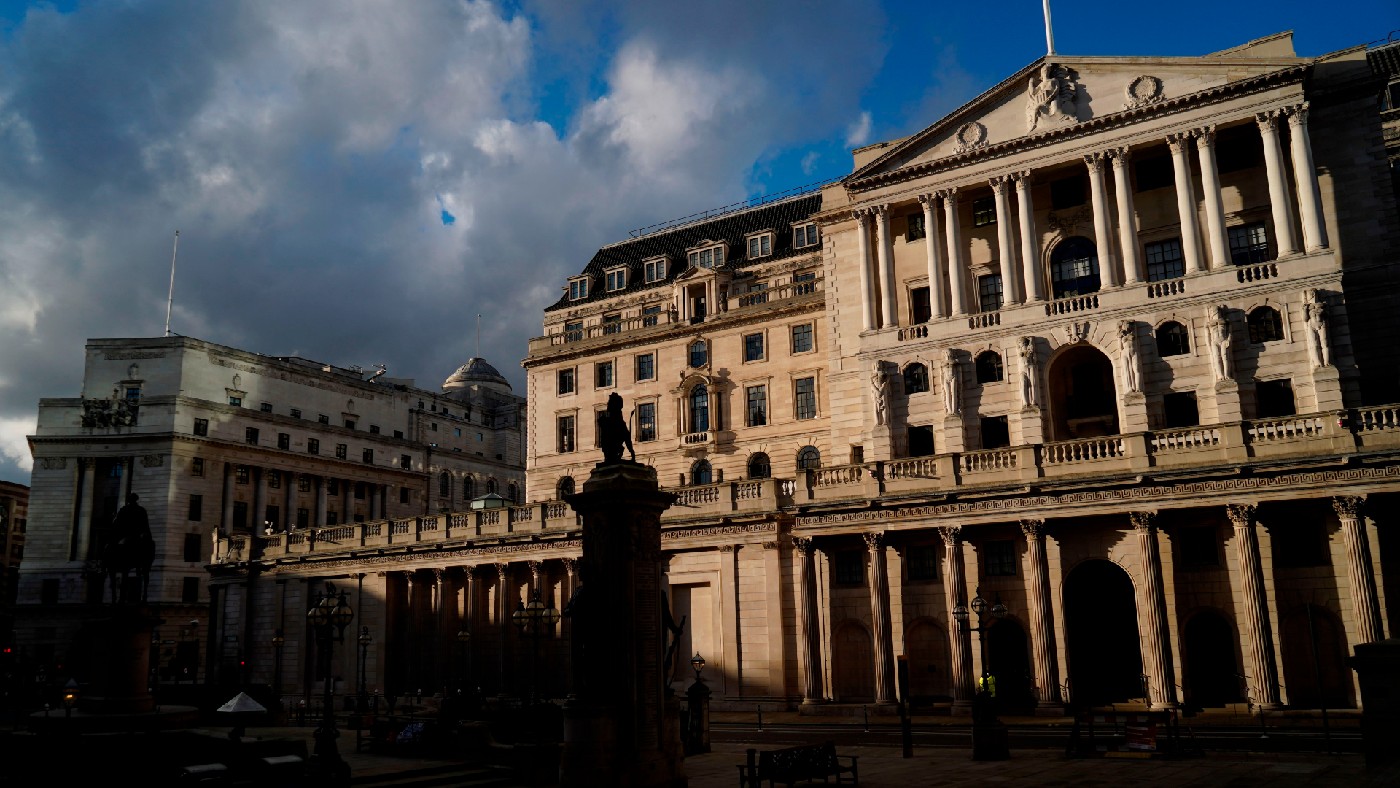Will interest rates come down again?
Rates have been frozen once again, raising hopes of a cut soon

A free daily email with the biggest news stories of the day – and the best features from TheWeek.com
You are now subscribed
Your newsletter sign-up was successful
The Bank of England has not increased interest rates since August 2023, raising hopes that the cost of borrowing may have peaked.
Rates were held at 5.25% for the fourth consecutive month at February’s meeting of the Bank's Monetary Policy Committee (MPC), while the latest Office for National Statistics data shows inflation rose slightly from 3.9% to 4% between November and December.
The Bank said there are signs "the restrictive stance of monetary policy is weighing on activity in the real economy and is leading to a looser labour market", so there was no current need to raise rates further.
The Week
Escape your echo chamber. Get the facts behind the news, plus analysis from multiple perspectives.

Sign up for The Week's Free Newsletters
From our morning news briefing to a weekly Good News Newsletter, get the best of The Week delivered directly to your inbox.
From our morning news briefing to a weekly Good News Newsletter, get the best of The Week delivered directly to your inbox.
While the freeze was expected by many, attention is now likely to turn to when interest rates will be cut.
Inflation remains at double the 2% target, said The Times Money Mentor, despite falling "significantly", which was the "main objective" of the interest rate rises.
Most analysts think rates have peaked, added the financial website, and will "soon start to fall".
What has the Bank said?
There was a split vote at the latest MPC meeting, with six members backing holding rates, two voting for a rise and one for a cut.
A free daily email with the biggest news stories of the day – and the best features from TheWeek.com
The single vote for a cut is a "powerful signal" that the central bank is getting closer to taking action, said The Guardian.
But the Bank's governor Andrew Bailey said: "We are not yet at a point where we can lower interest rates." The Bank has to be "more confident" that inflation is heading towards its 2% target, he said.
Bailey also warned the Treasury Select Committee in November that the markets are currently "underestimating" the "potential persistence" of inflation and its risks.
He had told a conference hosted by the Central Bank of Ireland in Dublin earlier that month that "it's really too early to be talking about cutting rates".
A "persistent barrier" to bringing down inflation is the "strong demand for workers, which is pushing wages higher", wrote The Guardian's Phillip Inman, and the "slow decline in food inflation" and "rise in the cost of services".
How will savers and mortgage holders be affected?
Higher interest rates and falling inflation means savings rates are more "competitive", said Moneyfacts.
More than 900 savings accounts currently beat inflation, added MoneyWeek, but you need to "grab these deals fast" as deals are often pulled from the market quickly.
There is also good news for homeowners, with major lenders cutting their mortgage pricing amid falling inflation and the freeze on the base rate.
Mortgage rates have fallen "significantly" since peaking at nearly 7% in August 2023, said Which? Some deals are priced at below 4% but the recent "surprise rise in inflation" and higher swap rates "may prevent mortgage rates from falling quickly", the consumer watchdog added.
What next?
The Bank's MPC will announce its next base rate decision on 21 March.
The Bank predicted in August that inflation would "continue to fall in 2024, and reach our 2% target by early 2025".
And "as soon as inflation is back under control", said The Times Money Mentor, "the Bank is likely to bring interest rates down".
Marc Shoffman is an NCTJ-qualified award-winning freelance journalist, specialising in business, property and personal finance. He has a BA in multimedia journalism from Bournemouth University and a master’s in financial journalism from City University, London. His career began at FT Business trade publication Financial Adviser, during the 2008 banking crash. In 2013, he moved to MailOnline’s personal finance section This is Money, where he covered topics ranging from mortgages and pensions to investments and even a bit of Bitcoin. Since going freelance in 2016, his work has appeared in MoneyWeek, The Times, The Mail on Sunday and on the i news site.